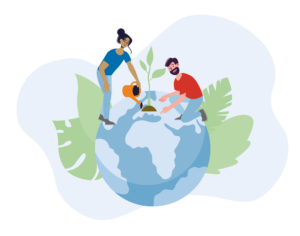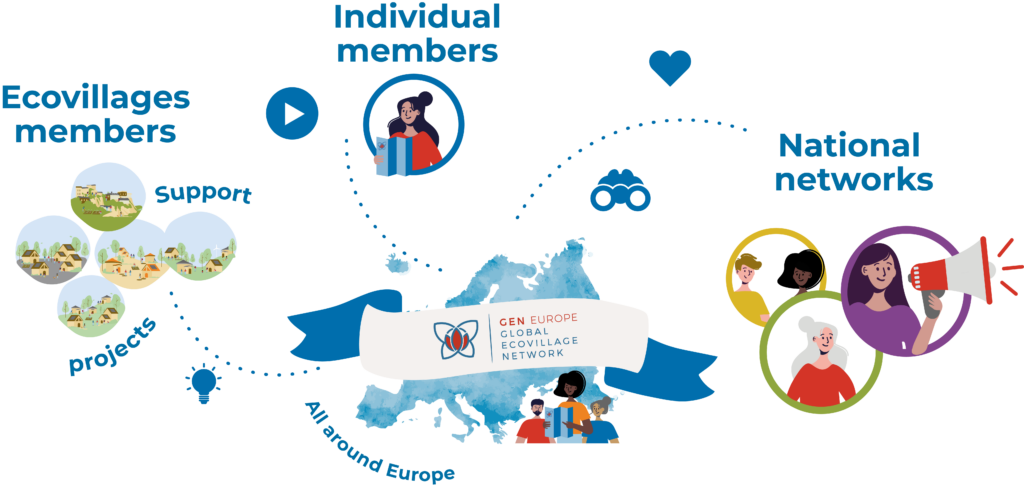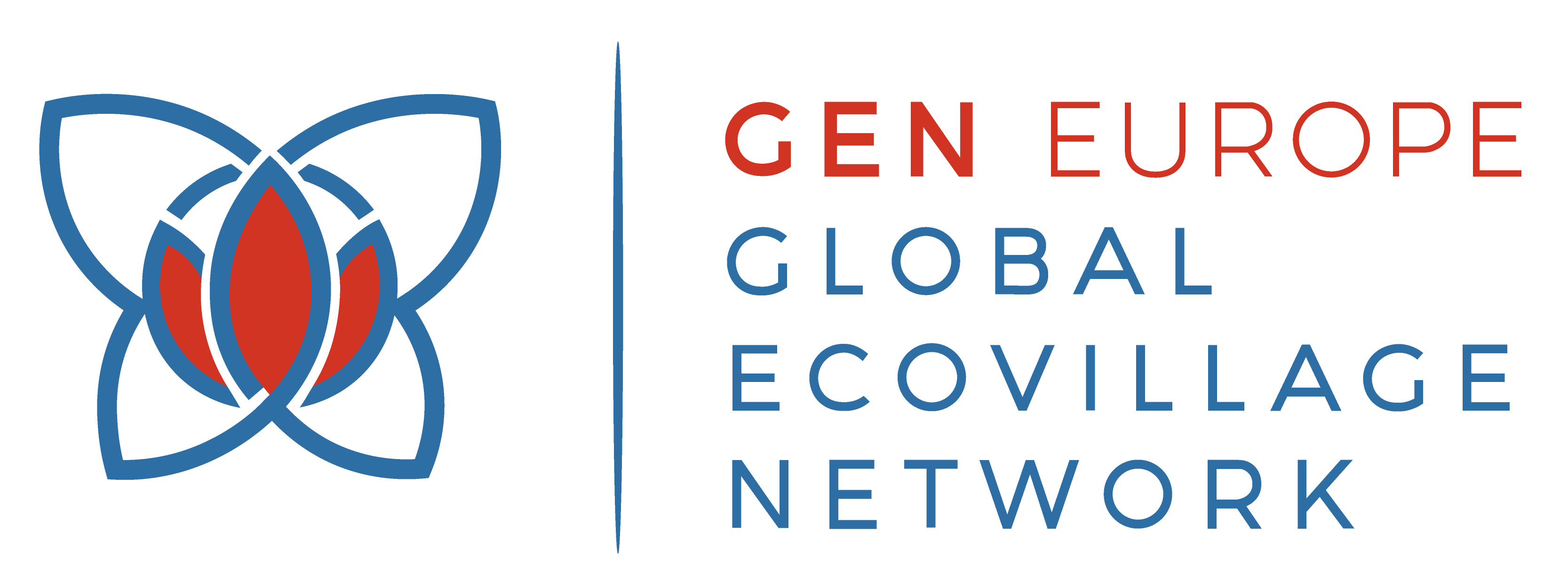What is an ecovillage?
…and what isn’t an ecovillage?
Each ecovillage is unique and there is no one strict definition of an ecovillage. However, there are some groups that are not ecovillages, including…
- One family living together: family may often feel like community – but the intentional process of ecovillage creation goes beyond the nuclear family.
- Religious groups: an ecovillage might have different religious beliefs, but this is not what defines them as an ecovillage.
- Sects or cults: a cult may have charismatic and unaccountable leadership and be based around coercive practices. In contrast to this, participation and shared leadership are defining elements of ecovillages.
Jump to our Statement of Tolerance to learn more.
What are ecovillages like?
Ecovillages are for everyone: for young and old, individuals and families, farmers and IT programmers… They also come in all shapes and sizes, from small settlements to large federations; from low-tech traditional agricultural communities to communities experimenting with the latest innovations in eco-technology. Some ecovillages build homes from scratch, others retrofit and recover abandoned buildings or villages. Some strive to grow all their own food, while others integrate into local sustainable supply chains. But despite their differences, they do have some important things in common, such as…

Participatory Processes
Ecovillages use different participatory governance and decision-making methods such as consensus or Sociocracy. They value the voice of each member of the community and aim to make decision-making fair, transparent, inclusive and accountable. Participation and integration of different voices is seen as an added value: something that makes the community a better place for everyone.

A holistic approach to sustainability
Ecovillages are sustainable settlements taking into account a holistic approach to sustainability: the social, economic, cultural and ecological aspects of life. Ecovillages usually engage in regenerative practices (practices that not only sustain systems, but improve them) in some or all of these areas. This might look like using innovative waste-management systems, alternative currencies, or providing environmental education. Many of our member ecovillages understand this approach using the Path of Regeneration.
Our members
As a network, we are powered by our members: over 100 ecovillages and aspiring ecovillage projects and 18 national ecovillage networks in 26 countries and counting. Our members collaborate on projects, exchange ideas and expertise, support one another in times of need, and network and build friendships at our events.
Explore the ecovillage map or meet our members!

Our statement of tolerance
GEN Europe promotes community life and the four dimensions of sustainability, in line with our vision and mission. Through our membership process, we welcome member ecovillages whose values align with ours.
Our values are important to us. We are aware that there may be organisations or groups of people that interpret parts of our texts, publications, the name and definition of an ecovillage, or our website and use them for the promotion of ideas or actions that are not in line with GEN Europe’s vision, mission and values. These are not members of GEN Europe and not considered part of the network.
We are tolerant of the diversity of viewpoints within our movement; however, we condemn and distance ourselves from any group or individual that (un)intentionally harms, or promotes harm to, other individuals or groups. Examples of initiatives we actively distance ourselves from are:
- Far right and extremist political groups/movements
- Individuals or groups that practice or espouse discrimination on the basis of race, ethnicity, sexuality or gender identity
- Individuals or groups that engage in anti-democratic practices
